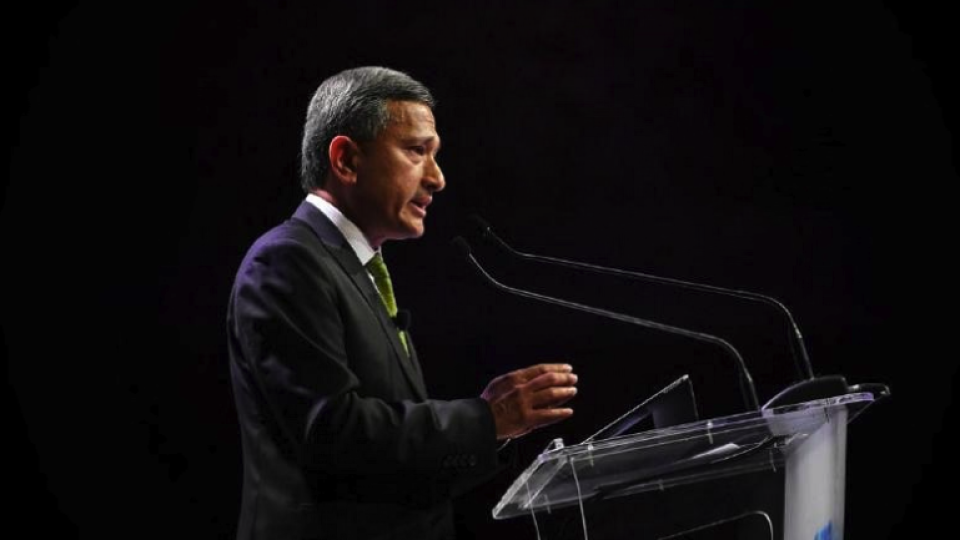NEW YORK (ANN/STRAITS TIMES) – Singapore has called on United Nations (UN) member states to prevent the normalisation of recent violations of international law, stressing the need for reform in global governance institutions to ensure they are more representative and responsive to contemporary challenges.
Singapore’s Foreign Minister Dr Vivian Balakrishnan, during his address at the 79th UN General Assembly on September 28, stated: “The invasion of one country by another, under the pretext of historical errors and grievances, cannot be justified by any means.”
Presenting Singapore’s national statement, Dr Balakrishnan highlighted Article 2 of the UN Charter, which mandates that all member states must refrain from using force against the territorial integrity of others. He also referred to UN Security Council (UNSC) Resolution 242, which was adopted after the 1967 Arab-Israeli war, and affirmed the “inadmissibility of the acquisition of territory by war.”
“If the notion that ‘might is right’ is allowed to prevail, the world will become a very dangerous place, especially for small states,” Dr Balakrishnan warned, adding that this would lead to a descent into chaos and conflict. He stressed that all countries, regardless of size, share the responsibility to work together to preserve peace and protect lives.

Dr Balakrishnan underscored the vital role of the UN as an arena for dialogue and cooperation, calling for a renewed commitment to multilateralism and strengthening the UN’s role in promoting peace and sustainable development.
He emphasised the need for Singapore and other small states to consistently stand for the adherence to international law and the UN Charter, urging member states to return to the core mission of the UN – maintaining international peace and security. “We must restore respect for the rule of law and the UN Charter, which has underpinned global peace and security for the last 80 years,” he added.
Dr Balakrishnan also stressed that global governance institutions, particularly the UNSC, must reflect the needs of small and developing states. He called for reforms to make the UNSC more transparent, accountable, and reflective of contemporary realities.
Highlighting the special responsibility of the Security Council’s five permanent members – the US, UK, France, Russia, and China – Dr Balakrishnan said they must demonstrate leadership by cooperating to maintain international peace and security. He added that the lack of trust among major powers has exacerbated conflicts in regions such as Ukraine, the Middle East, and Sudan.
The Foreign Minister welcomed the “veto initiative,” which requires UNSC permanent members to be accountable to the UN General Assembly when casting a veto. While acknowledging this as a positive step, he stressed the need for further reforms to enhance the UNSC’s transparency and accountability.
Dr Balakrishnan reaffirmed Singapore’s commitment to multilateralism, stating that small states like Singapore cannot afford to take sides or become entangled in great power rivalries. “For small states, multilateralism and international law is not an option; it is an existential necessity,” he said. He emphasised that Singapore’s priority is to defend its sovereignty, exercise its autonomy, and chart its own future.
He also expressed Singapore’s support for UN Secretary-General Antonio Guterres’ New Agenda for Peace, which encourages cooperation and collective action to address shared global challenges. Singapore stands ready to work with other UN member states to strengthen the UN’s role in preventive diplomacy, mediation, and conflict prevention.
Dr Balakrishnan reiterated Singapore’s support for achieving the UN’s Sustainable Development Goals (SDGs) by 2030 and announced the renewal of Singapore’s capacity-building programme for the Forum of Small States (FOSS). The “FOSS for Good” initiative will focus on digital-themed programmes to support the Global Digital Compact, a framework for global governance of digital technologies and artificial intelligence.
Additionally, the Foreign Minister highlighted Singapore’s ratification of the Marine Biodiversity of Areas Beyond National Jurisdiction (BBNJ) Agreement, a key step in strengthening the UN Convention on the Law of the Sea (UNCLOS). He praised the outcomes of the recently concluded Summit of the Future, including the adoption of the Pact for the Future, the Declaration on Future Generations, and the Global Digital Compact, as significant milestones in reinvigorating international cooperation.
“Singapore will continue to share its development experience and support fellow small states in their efforts to achieve peace, security, and sustainable development,” Dr Balakrishnan said in closing.





